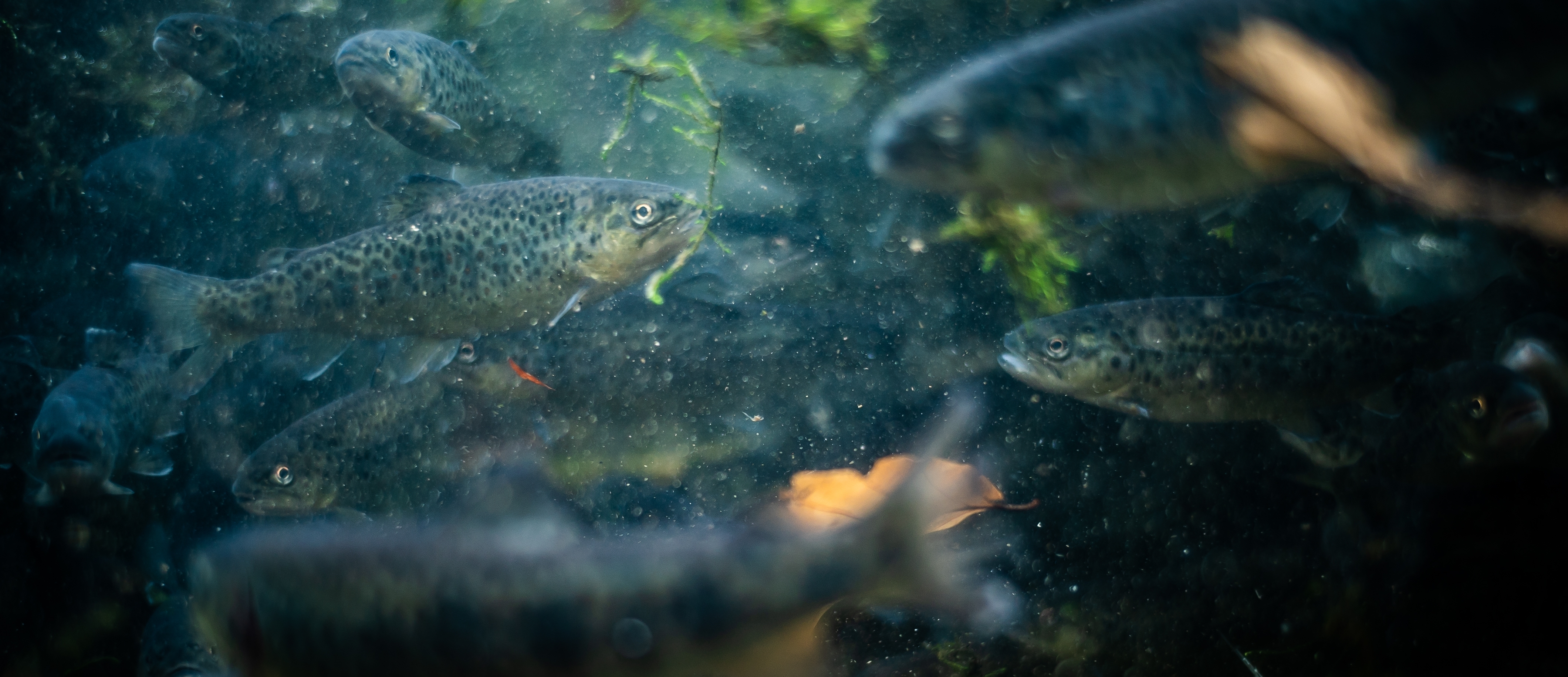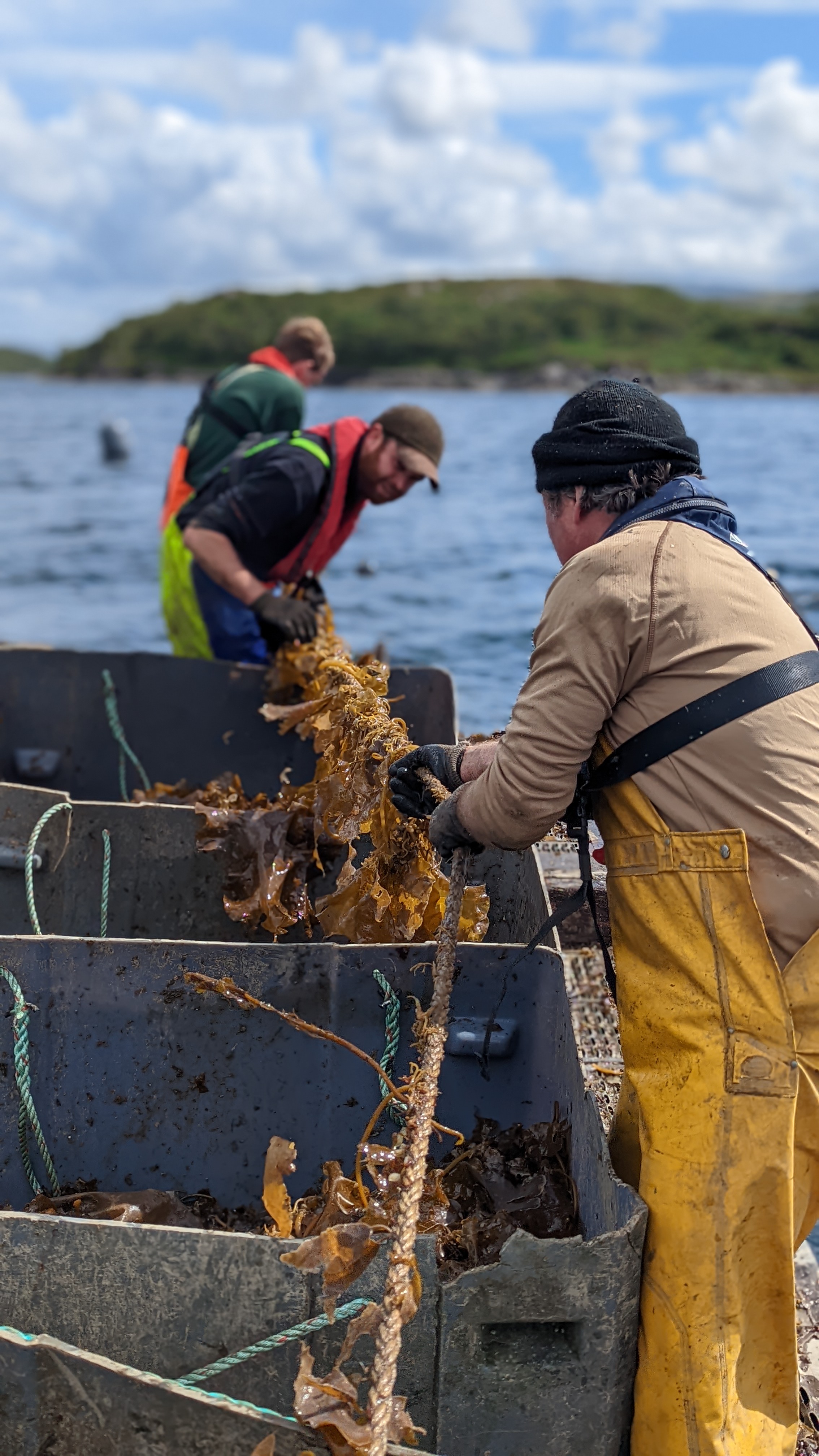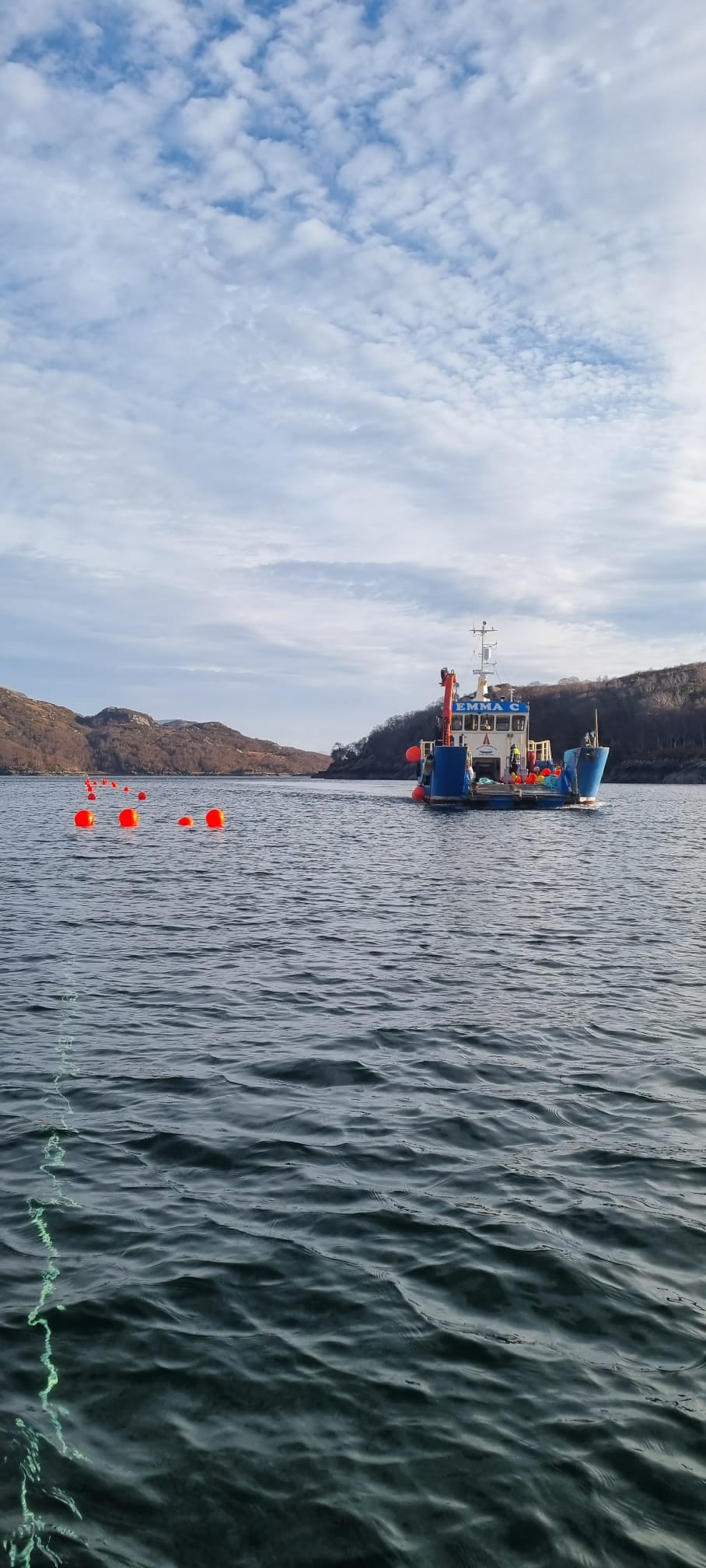Gimme shelter

Kelp forests are a cornerstone environmental resource. One seaweed farmer in the west of Scotland is doing its bit to restore them, reports Sandy Neil
Highland coastal kelp forests are among seven major environmental projects being supported by Scotland’s salmon farmers to help save iconic wild salmon and sea trout.
More than £118,000 has been granted to organisations this year through Salmon Scotland’s Wild Fisheries Fund to address long-term species decline.
The fund is part of a £1.5m commitment from Scotland’s salmon farmers to support the conservation, restoration and sustainable management of wild fish numbers.
Atlantic Mariculture, a seaweed farmer based at Ardtoe on the Ardnamurchan Peninsula, has been awarded £43,102 to deploy specially designed kelp shelters for wild salmon and sea trout.
This will mean five inshore forests are created with seaweed grown on ropes along the west coast near the Rivers Shiel and Moidart – both key ecosystems.
Kelp forests are known to provide food and security for many fish species. It’s hoped that Atlantic Mariculture’s planned shelters will offer crucial rest stops for migrating sea trout, benefitting the wider marine ecosystem.
They will deploy five 100m-long shelters, growing sustainable brown kelp species native to the area, providing a dense environment for sea trout and repurposing historical salmon netting stations where possible.
The sites will be closely monitored throughout the two-year project using underwater drones, divers, cameras and specialist sensor equipment.
“Wild kelp forests are a known habitat for salmonid species but there has been little research into how kelp farm systems may offer these same habitat benefits,” the company explained.
“This project intends to improve understanding of how small, managed seaweed farm units can supply ecosystem services specific to wild sea trout, assessing how this understanding can be extrapolated and incorporated on a commercial scale seaweed farm.
“The project will observe the behaviour of wild sea trout, migrating to and from known spawning areas, within a small-scale kelp farm environment.”
Five observation lines will be deployed at sea in proximity to the Shiel and Moidart river catchment area.

Atlantic Mariculture team
The project is observational and will record the behaviour of sea trout using underwater cameras, drone imaging and dive surveys. In addition to the observation of sea trout behaviour, the project will test and assess the viability of using natural-fibre wool ropes in comparison with synthetic fibre ropes to grow native Scottish kelp. The project will take place over 24 months to evaluate the relationship between seaweed farms and sea trout over two spawning cycles. The observation lines will be subject to the same discipline and management rigours of a seaweed farm.
Amabel Hamilton, Chief Executive of Atlantic Mariculture, says: “Atlantic Mariculture is delighted to have been awarded a research grant to examine how kelp shelters can enhance habitats for sea trout in the coastal waters around Moidart.
“Sea trout have endured a difficult few decades and thanks to the Salmon Scotland Wild Fisheries Fund, we can now explore how to support this native and sensitive indicator species using cultivated Scottish kelp.”
Amabel and her husband Douglas founded the business in 2018, and have been farming kelp at their 15-hectare seaweed farm in Loch Sunart since 2021, they told the Highlands and Islands Enterprise magazine.
“We also run a kelp processing facility at Ardtoe Marine Laboratory. In 2021, we started testing what species grew best on the farm and experimented with supplying to different markets but have since settled on a combination of fresh food and biostimulant production.
“Our biostimulant processing is relatively simple; we let the seaweed ferment with fresh water in tanks before passing the liquid through our unique filtration system, all of which requires low energy input.
“In January 2023, we overhauled our farm structure and expect to produce up to 40 tonnes this season, which we hope to scale to 100 tonnes by 2025 to 2026.
“Most of our seaweed biomass is sold to the agriculture market as our liquid biostimulant Liquid Kelp™ or our SeaBiome™ slow-release mulch pellets. We also sell small-scale fresh seaweed to the food market during the early harvest season. In the spring, we deliver fresh seaweed twice-weekly to London restaurants.
“We also offer to buy bulk seaweed biomass from seaweed farmers to process into our plant and soil product ranges. Finally, we are launching consultancy services to help potential farmers get set up, from farm design through to licensing and processing.
“Farming kelp is beneficial to the marine environment as it cleans the water, reduces ocean acidification and can act as a carbon sink, although only if done sustainably and correctly.”
Plant and soil health products made from kelp can also play a role in regenerative agriculture, the company says. Atlantic Mariculture is working with farmers and industry members to understand how the team can support the transition from traditional practices to more sustainable farming practices.
Hamilton says: “We want the seaweed industry to grow and hope there will be space for a mix of small- and large-scale farmers to coexist. Seaweed farming is an exciting opportunity for coastal communities. The more kelp is grown, the more sustainable products can be made using this incredible natural resource.”

Atlantic Mariculture vessel
Helping wild salmonids
Habitat loss and rising river temperatures, primarily due to climate change, have impacted wild salmon and sea trout populations across the UK, including the Scottish coastline.
Salmon farming companies, which only operate on the west coast, launched the Wild Fisheries Fund to play their part finding solutions, engaging constructively with the wild fish sector and taking meaningful action to save wild salmon.
Previously called the Wild Salmonid Fund, more than £190,000 has already been invested since 2021, including a £35,000 grant to save the leaking Fincastle Dam on West Harris, helping preserve an important salmon fishery.
Among the six projects awarded funds in 2023 were Ayrshire Rivers Trust, which was granted £15,543 to undertake a restoration project to address riverbank erosion at the Netherton Burn. Obbe Fishery won £3,000 to repair an ageing sea dam wall, introduce an underwater camera for monitoring fish runs and add and clean feeder streams spawning gravel.
Further south, the Loch Lomond Angling Improvement Association was awarded £23,000 to fund habitat improvement at 12 sites along the River Fruin, aiming to remove fish migration barriers, plant trees and stabilise banks. Loch Lomond Fishery Trust also received £12,381 to engage with young people in Garelochhead, providing practical workshops on fisheries management, bankside strengthening and tree planting.
On the Cowal Peninsula in Argyll, the River Ruel Improvement Association received £10,000 to tackle erosion and minimise the entry of fine sediment into the river through tree planting and fencing to mitigate livestock trampling, while the River Eachaig Fishery Syndicate was granted £11,084 for ecological improvements to the riverbed at the Lamont pool.
The fund is co-ordinated by Fishery Manager Jon Gibb, who has championed a constructive relationship between the farm-raised salmon sector and fisheries and angling groups.
Gibb said: “It’s fantastic to support a variety of innovative projects dedicated to conserving and enhancing the habitat, particularly for a species facing extinction in certain areas.
“Wild salmon are facing a deep and dire crisis, and the aquaculture sector can play a vital role in mitigating their decline.”

